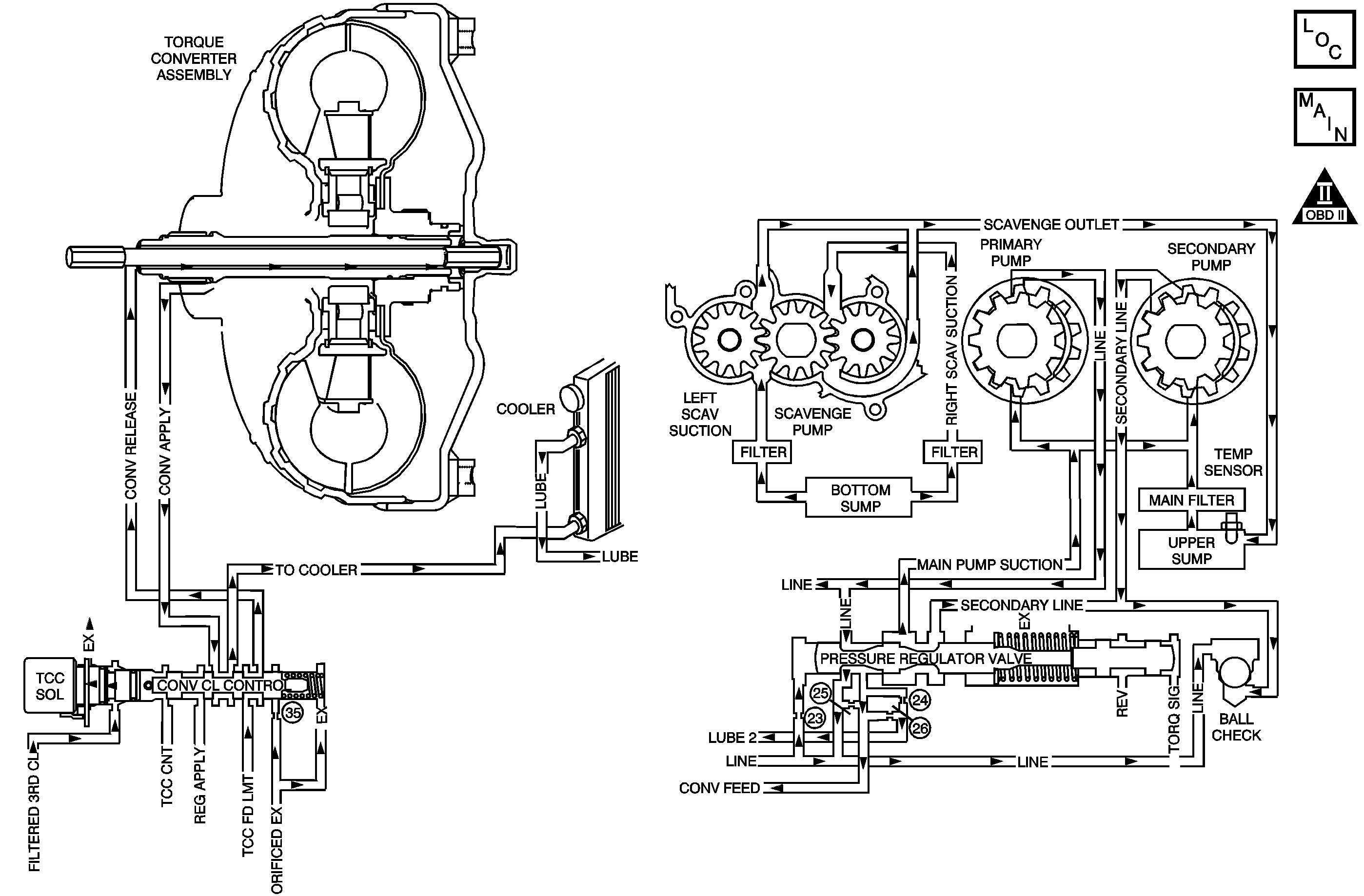
Circuit Description
The Automatic Transmission Fluid Temperature (TFT) sensor is a negative coefficient thermistor. When the transmission fluid is cold, the sensor resistance is high. As the transmission fluid warms up, the sensor resistance becomes lower. The Powertrain Control Module (PCM) uses TFT information to control Torque Converter Clutch (TCC) apply and release, line pressure, and shift time. The TFT range is from -40°C to +151°C (-40°F to +305°F).
If the PCM detects a high transmission fluid temperature for an extended period of time on the TFT sensor circuit, then DTC P0218 sets. DTC P0218 is a Type C DTC.
Conditions for Setting the DTC
| • | No ECT DTCs P0116, P0117 or P0118. |
| • | No TFT DTCs P0711, P0712 or P0713. |
| • | The engine coolant is greater than 0°C (32°F). |
Fail case 1: The transmission fluid temperature is greater than 130°C (266°F) for 30 minutes.
Fail case 2: The transmission fluid temperature is greater than 144°C (291°F) for 32 seconds.
Action Taken When the DTC Sets
| • | The PCM does not illuminate the Malfunction Indicator Lamp (MIL). |
| • | IDLE ENGINE TRANSMISSION HOT message displays on the Driver Information Center. |
| • | DTC P0218 is stored in the PCM history. |
Conditions for Clearing the DIC/DTC
| • | The transmission fluid temperature must be less than 129°C (264°F) for more than 5 seconds. |
| • | A scan tool can clear the DTC from the PCM history. The PCM clears the DTC from the PCM history if the vehicle completes 40 warm-up cycles without a failure reported. |
Diagnostic Aids
| • | Inspect the transmission cooling system for possible blockage and restrictions. |
| • | Ensure that the transmission fluid is at the proper level. |
Test Description
The numbers below refer to the step numbers on the diagnostic table:
-
This step ensures that the transmission fluid is at the proper level. A low fluid level may cause an overtemperature problem.
-
This step inspects or repairs the following items:
| • | Engine: Refer to Cooling and Radiator, Section 6. |
| • | Vehicle: Was the vehicle used to tow excessive weight? |
| • | Fluid: Refer to Transmission Fluid Check . |
| • | Filter: Replace the filter if the filter is cracked or not seated. Refer to Filter Replacement. |
| • | Scavenger Screens: Refer to Unit Repair. |
| • | Low Line Pressure: Inspect cooler lines for any crimps or restrictions. Refer to Line Pressure Check . |
| • | Radiator: Refer to Cooling and Radiator, Section 6. |
Step | Action | Value(s) | Yes | No | ||||||||||||||
|---|---|---|---|---|---|---|---|---|---|---|---|---|---|---|---|---|---|---|
1 | Was the Powertrain On-Board Diagnostic (OBD) System Check performed? | -- | Go to A Powertrain On Board Diagnostic (OBD) System Check | |||||||||||||||
Have you performed the transmission fluid checking procedure? | -- | Go to Transmission Fluid Check | ||||||||||||||||
This DTC can only be set if one or more of the following items is at fault.
Have you completed the procedure? | -- | -- | ||||||||||||||||
4 | In order to verify your repair, perform the following procedure:
Has the test run and passed? | -- | System OK |
